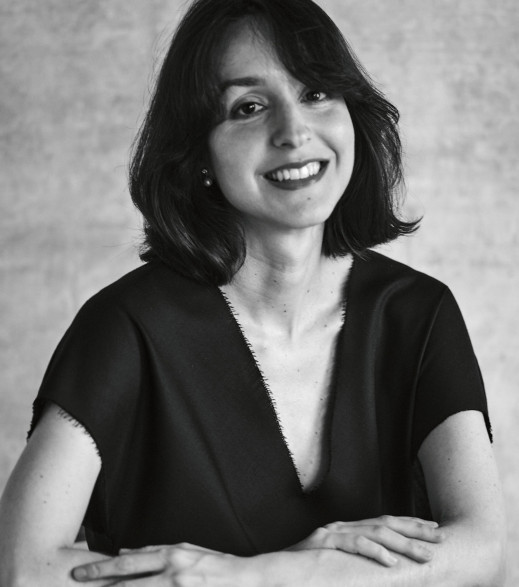Just Fashion
Original title: La moda justa
The title "Just Fashion" points to a double meaning—the first refers to keeping just the right amount of fashion in your closet, fleeing from gluttony and keeping only the things that are essential. The second is about demanding what is fair, what is produced in a context where no one loses. Clothing is inanimate, so we are the ones who need to put this consciousness on it with the commitment to learning more about who is behind the clothes, because these choices have consequences. What we wear is a communication tool—it explains who we are to others, and it explains to our own selves who we want to be. These pages propose a fork in the convoluted road of consumerism and a reflection on our priorities. The goal: understand the system from the inside, buy a lot less, and make better choices.
"The book's subtitle is 'An invitation to dress ethically," and from there it announces a unique way to confront the topic of fashion—a topic associated with frivolity, outrageous consumption, and posture. But this brief essay has the virtue of ending prejudices and offering an original and different viewpoint. Journalist Marta D. Riezu is on point as she shows us how a closet can have just the right amount of clothing that is also manufactured ethically. Conscience, honesty, and compromise are a few ideas that we haven't associated with fashion. Until now." —Publishers Weekly en Español
"A move showed Marta D Riezu (Terrassa, 1979) that she had enough clothing for 'three armies.' This fact, along with the profound knowledge that her career as a journalist gave her on the flawed dynamics that move the fashion industry, made her develop a new sensibility as a consumer of clothing. She tells us about this in La moda justa (Anagrama), a book that in merely a week—it was published last November 10—was able to make its way into the top spots of the most-sold essays." —Vogue
The title "Just Fashion" points to a double meaning—the first refers to keeping just the right amount of fashion in your closet, fleeing from gluttony and keeping only the things that are essential. The second is about demanding what is fair, what is produced in a context where no one loses. Clothing is inanimate, so we are the ones who need to put this consciousness on it with the commitment to learning more about who is behind the clothes, because these choices have consequences. What we wear is a communication tool—it explains who we are to others, and it explains to our own selves who we want to be. These pages propose a fork in the convoluted road of consumerism and a reflection on our priorities. The goal: understand the system from the inside, buy a lot less, and make better choices.
"The book's subtitle is 'An invitation to dress ethically," and from there it announces a unique way to confront the topic of fashion—a topic associated with frivolity, outrageous consumption, and posture. But this brief essay has the virtue of ending prejudices and offering an original and different viewpoint. Journalist Marta D. Riezu is on point as she shows us how a closet can have just the right amount of clothing that is also manufactured ethically. Conscience, honesty, and compromise are a few ideas that we haven't associated with fashion. Until now." —Publishers Weekly en Español
"A move showed Marta D Riezu (Terrassa, 1979) that she had enough clothing for 'three armies.' This fact, along with the profound knowledge that her career as a journalist gave her on the flawed dynamics that move the fashion industry, made her develop a new sensibility as a consumer of clothing. She tells us about this in La moda justa (Anagrama), a book that in merely a week—it was published last November 10—was able to make its way into the top spots of the most-sold essays." —Vogue
